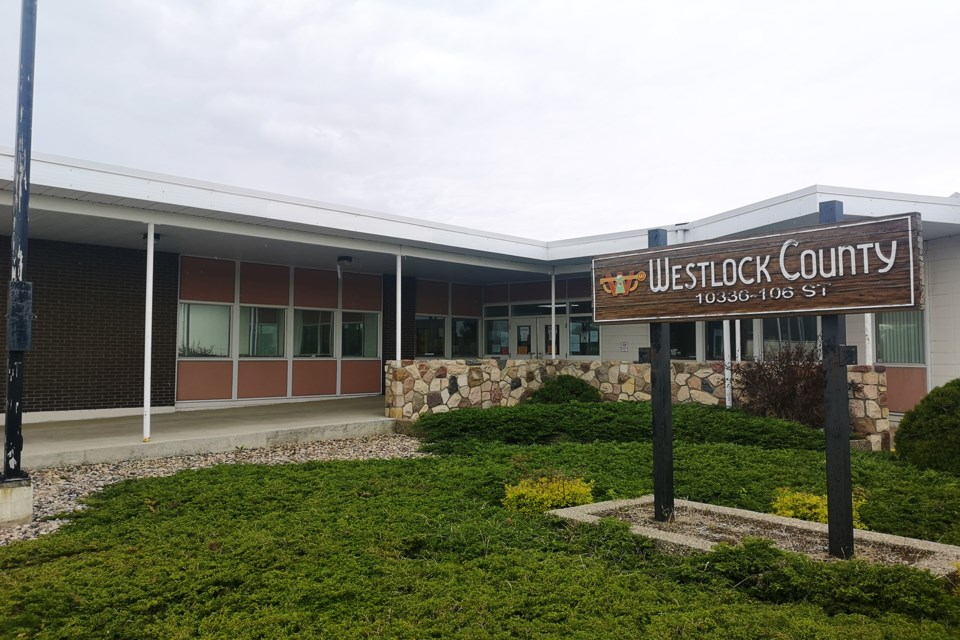WESTLOCK — Westlock County is in the minority among other Alberta municipalities with its 2024 operating budget, which is not only a balanced budget but will also see a decrease of 0.37 per cent in both revenue and expenses.
Councillors passed a motion during their Dec. 12 meeting to approve the proposed budget, which includes revenue and expenses of $20,655,711.
This budget does not include the 2024 tax rate, which will not be set until April when assessments are complete.
However, the county expects to collect a total of $10,996,487 in tax revenue this year, with the remaining $9,659,225 coming from other revenue sources.
The county anticipates a 10 per cent decrease in conditional grants and a 15 per cent decrease in revenue from fees and charges.
On the expenses side, the biggest variances will be seen in advertising and printing expenses (a 32 per cent increase), professional services (a 39 per cent increase), mileage and subsistence (a 30 per cent increase) and contract services (a 31 per cent decrease).
Chief administrative officer Tony Kulbisky said that achieving a balanced budget that shows a decrease in revenue and expenses without significantly changing the tax rate “is quite a remarkable feat, compared to what other municipalities have gone through in their budget deliberations.”
In a release, Reeve Christine Wiese added, “Westlock County is certainly in the minority of municipalities who are reducing their operating expenses in these challenging times, with the aim of limiting any potential tax increases.”
Peggy Hardinge, general manager of corporate services, noted administration used a conservative approach in assessment projections, keeping in mind the inflationary pressures being faced today by residents, farmers, commercial entities and the county itself.
That’s not to say there haven’t been some sacrifices; as noted in a backgrounder provided by Westlock County, transfers to reserves have been temporarily reduced, while transfers from reserves are being used to support revenue in the short term and offset growth in the long term.
In total, there will be a transfer from reserves of $1,421,437 and a transfer to reserves of $579,049.
The 2024 municipal capital budget had been previously passed at the Nov. 14 council meeting. It includes a total of $986,000 in expenditures such as improvements to the Tawatinaw Valley ski chalet and the purchase of a new enforcement vehicle. These projects will be funded through reserve transfers ($345,000), grants ($631,000) and the proceeds of sales ($10,000).
New process
While coming up with this year’s operating budget, council and administration utilized a new process of first approving the 2024 capital budget in mid-November and then going through two and a half days of budget deliberations from Dec. 4-6.
Kulbisky said by separating the capital and operating budgets, it allowed for more focused discussions between council and administration, “resulting in a more collaborative and efficient process.”
Throughout the process, he said administration also considered and incorporated the pillars, goals and strategies outlined in council’s strategic plan.
They also tried to integrate elements of the 2023-2026 corporate business plan, which is itself essentially a blueprint for how to achieve the strategic plan.
At the Dec. 12 meeting, Wiese commended the work of all the staff in putting together this budget, acknowledging that it isn’t easy to come before council and ask for money.
Coun. Stuart Fox-Robinson, who put forward the motion to approve the budget, said he was very proud of this budget, as should everyone else who was involved in crafting it.
“This has been the best budget process that this council has been through,” he said, commending the rest of council for holding the line on remuneration.
Coun. Jared Stitsen said it was a very clean budget process, adding that staff seemed to anticipate a lot of the questions that council came up with.
“It’s not just a service to council; it’s a big service to our residents when council can go through a budget process and really understand what we’re doing, and have all our questions answered,” he said.



